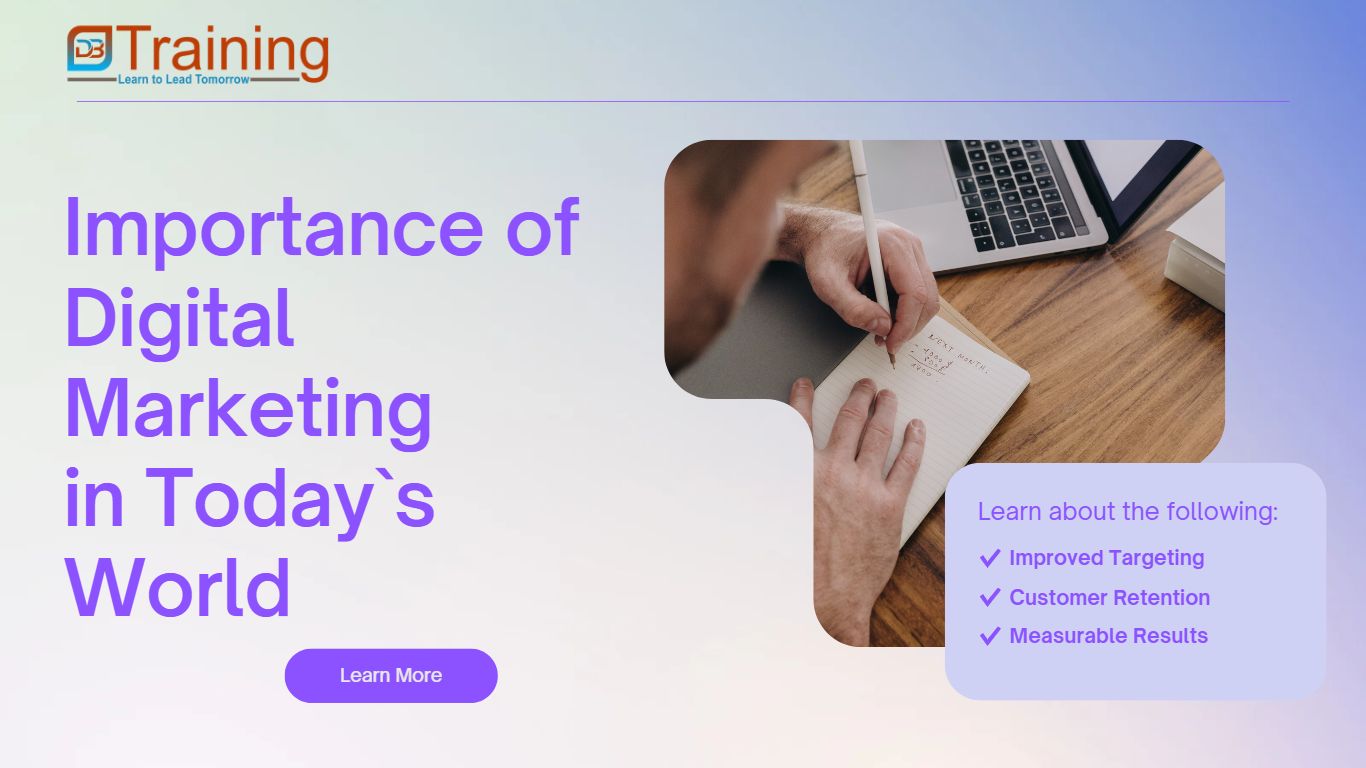As we approach 2023, it's clear that the future of marketing is digital.
With the pandemic accelerating the shift towards online channels, businesses
must adapt to keep up with changing consumer behavior.
In the digital age, customers are looking for more than just a
transaction; they want to feel a connection with the brands they interact with.
This is where digital marketing comes in, enabling businesses to build
relationships with customers and drive engagement like never before. From
social media marketing to content creation and SEO, the tools available to
marketers are constantly evolving, and those who don't keep up risk falling
behind.
In this article, we'll explore why your business needs to embrace
digital marketing to stay relevant and competitive in 2023 and beyond. Whether
you're a small business owner or a marketing professional, understanding the
latest trends and best practices in digital marketing is essential for success
in the years to come.
What is Digital Marketing?
Digital marketing is the implementing marketing techniques in digital
ways to promote products or services. It encompasses a broad range of tactics,
including content
marketing, search
engine optimization (SEO), pay-per-click advertising (PPC), social media marketing, email marketing, and more. Unlike
traditional marketing, which relies on print, TV, and radio advertising,
digital marketing provides businesses with the ability to target specific
audiences and track the effectiveness of their campaigns in real-time.
Current State of Digital Marketing
The pandemic has accelerated the shift towards digital marketing, as
businesses have had to adapt to the changing consumer behavior. According to a
report by Hootsuite, social media usage increased by 13% in 2020, with
Facebook, Instagram, and Twitter all seeing significant growth. Additionally,
e-commerce sales reached an all-time high in 2020, with online shopping
becoming the norm for many consumers. As a result, businesses that were slow to
adopt digital marketing strategies have been left behind, while those that
embraced it have thrived.
Emerging Digital Marketing Trends
The digital marketing is constantly evolving. One of the most significant trends in recent
years has been the rise of video marketing, with platforms like YouTube, TikTok, and Instagram Reels becoming
increasingly popular. Influencer marketing has also become a significant trend,
with businesses partnering with social media influencers to promote their
products or services to their followers. Another emerging trend is the use of
chatbots, which can provide customers with quick and convenient answers to
their questions.
Importance of Embracing Digital Marketing
In the digital age, consumers expect to be able to interact with
businesses online, whether it's through a website, social media, or email. By
embracing digital marketing, businesses can meet these expectations and build
strong relationships with their customers. Digital marketing also provides
businesses with the ability to target specific audiences and track the
effectiveness of their campaigns in real-time. This means that businesses can make
data-driven decisions and optimize their marketing strategies to achieve better
results.
Benefits of Digital Marketing
There are numerous benefits to embracing digital marketing. One of the
very significant benefits is its ability to reach a large audience. With
digital marketing, businesses can target specific demographics and geographic
regions, ensuring that their message reaches the right people. Digital
marketing is also more cost-effective than traditional marketing, as it allows
businesses to reach a larger audience for a lower cost. Additionally, digital
marketing provides businesses with the ability to track the effectiveness of
their campaigns in real-time, enabling them to optimize their strategies for
better results.
Role Machine Learning and Artificial
Intelligence(AI) in Digital Marketing
Artificial intelligence (AI) and machine learning are playing an
increasingly important role in digital marketing. AI-powered chatbots, for
example, can provide customers with quick and convenient answers to their
questions. Machine learning algorithms can also be used to analyze customer
data and provide businesses with insights into their behavior and preferences.
This information can be used to create more targeted and personalized marketing
campaigns that are more effective at driving engagement and conversions.
Creating a Digital Marketing Strategy
To succeed in digital marketing, businesses need to have a clear
strategy in place. This involves identifying their target audience, setting
clear goals and objectives, and choosing the right channels and tactics to
reach them. Businesses also need to create high-quality content that resonates
with their audience and provides value. Additionally, businesses need to track
the effectiveness of their campaigns and make data-driven decisions to optimize
their strategies for better results.
Measuring the Effectiveness of Digital Marketing
One of the key advantages of digital marketing is the ability to track
the effectiveness of campaigns in real-time. Businesses can use tools like
Google Analytics to track website traffic, measure engagement on social media,
and analyze the effectiveness of their advertising campaigns. By tracking these
metrics, businesses can identify areas where they need to improve and make data-driven
decisions to optimize their strategies for better results.
Tools and Technologies for Digital Marketing
There are numerous tools and technologies available to businesses for
digital marketing. These include social media management tools like Hootsuite and Buffer, email marketing
platforms like Mailchimp
and Constant Contact,
and content management systems like WordPress and Squarespace.
Businesses can also use tools like Google Analytics and Google Ads to track the effectiveness of their campaigns and
make data-driven decisions to optimize their strategies for better results.
The Future of Digital Marketing
The future of digital marketing is amazing and full of enormous
possibilities. As technology continues to evolve, businesses will have access
to even more powerful tools and technologies for reaching and engaging with
their customers. Artificial intelligence and machine learning will play an
increasingly important role in digital marketing, providing businesses with
even more insights into customer behavior and preferences. Additionally, as
virtual and augmented reality technologies become more advanced, businesses
will be able to provide even more immersive experiences for their customers. Lots
of Digital Marketing Institutes offer Digital Marketing Course in order to prepare
an Army of Digital Marketers.





